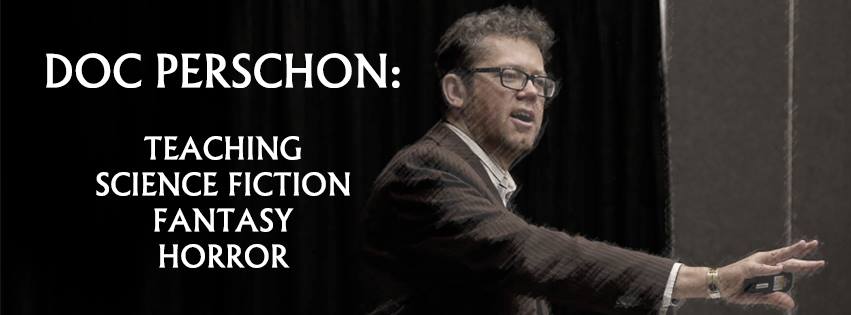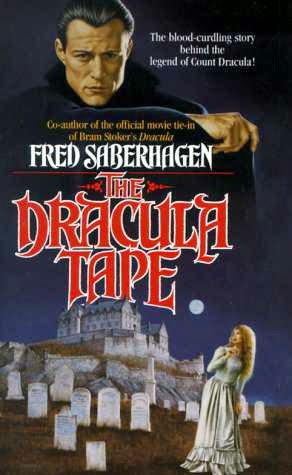A long time ago, in a galaxy far, far away...
Time and space.
I usually give students hell for this sort of an intro, but in the case of literature, it's true. As far back as we have stories, we were telling tales of fantastic journeys. The oldest story in the world is the Epic of Gilgamesh, and it's a tale of fantastic journeys: from wild-man Enkidu's journey from the wild to the fabulous walled city of Uruk, to Enkidu and half-divine hero Gilgamesh's journey to battle the horrid Humbaba, guardian of the Cedar Forest, to Gilgamesh's journey in search of immortality, to the journey of Utnapishtim in his ark to escape the wrath of the gods through a worldwide flood (the first apocalyptic/post-acocalyptic story!), the fragmented tablets from our ancient past tell us a story that is big, bold, and blockbuster-style. Were Gilgamesh to be brought to the screen today, it would require the powers of Ray Harryhausen, Pixar, or WETA Workshop
to render on-screen. It would likely be marketed as a fantasy.
It's a tale of a long time ago, in a land, far, far away. Time and space.
We love stories that take us on the journey, even if the story itself isn't about a journey. Edgar Allan Poe's "A Telltale Heart" is not a story of a fantastic journey, but it is one for the reader. We, not the narrator, are transported through time and space, to occupy the mind of a lunatic killer in the nineteenth century. Charlotte Perkins Gilman did the same: though her narrator never leaves the room she is effectively trapped in, the reader is transported into the mind of a woman in the nineteenth century, to journey along a slow descent into madness. For a reader like me, the transport not only crosses time and space, but gender as well. Bram Stoker's Dracula makes the reader dance from gender to gender, from nineteenth-century Transylvania to London and back again in pursuit of a monster: in the twentieth-century, Fred Saberhagen would place us in the mind of the monster in The Dracula Tape. What draws us to journey into the mind of a monster, to traverse halls of horror?
These too, are tales of a time that seems long ago, and even though I can visit London and Transylvania, will always be far, far away. One cannot visit the Borgo Pass that Stoker describes, for it does not exist. Stoker's Borgo Pass has a sheer drop off. The real Borgo Pass is a series of rolling hills. Modern London is not nineteenth-century London. Yet through Stoker's tale of horror, I can travel through time and space.
Yet sometimes, the journey isn't to the past: instead, we hurtle towards the future. Be it on a "five-year mission to explore strange new worlds" or into the dark recesses of space where "no one can hear you scream," we are as keen to journey into our future as we are to visit the past. George Lucas's Star Wars imagined a past which felt like the future. Terry Brooks' Shannara series imagines a future that feels like our past.
I love literature's ability to take me places I cannot go, and be people I cannot be. Speculative literature, be it fantasy, science-fiction, or horror, takes me farther than so-called realist literature can. I have loved the transport I experience in these sorts of stories since I could read. I have thrilled to them on the big-screen and small, on pages filled with nothing but text, and those which blend both text and image.
Sometimes, those stories are meant only to entertain, and I am transported, but not transformed. This is not a bad thing, whatever the champions of "serious" SF, Fantasy, or Horror might say. As Michael Chabon has argued in his essay "Trickster in a Suit of Lights," entertainment is not a low calling. Nevertheless, I believe that these forms of story are best when they both transport and transform. While I will always love Star Wars for pulling me into the world of science fiction, and thereby fantasy, and finally horror, I, like Samuel Delaney, have issues with the white-washed, male-dominated universe Lucas created. I will always love it, but it will always be the SF of my youth.
When I was a child, I read Science Fiction as a child, and preferred Lucas to Asimov. Now that I am grown, I seek greater depth. Yet I have not forgotten how to view the worlds without end in Speculative Literature with wide-eyed-wonder; my desire for depth is not supercilious cynicism or elitism. Just because Star Wars doesn't satisfy my need for depth does not mean I disregard it; I am currently watching the CW's The 100 and enjoying it, with an awareness of who I was when I was 18, understanding that this particular work of SF is not meant for a middle-aged academic.
For many years, my journeys in time and space were theological; when that ended, I was limited for a time to the worlds of fairy tale, and then subsequently to steampunk journeys, while I worked on my graduate degrees. Those journeys are all behind me, and will inform the one I have embarked on this year: to travel back in time through the works of speculative literature that precede this May 4, 2014, but also to travel forward through the works that are yet to come. This is a journey that will take the rest of my life, but I am allotting a decade to traverse a loose "canon" of 200 years prior, starting with the fairy tales of the Brothers Grimm. This new blog is a very bold step in that direction, and I invite all newcomers to join me on this journey, through time and space, to the future, to the past, to worlds beyond this one; through Wardrobe doors and worm holes and witch-woods to places we cannot go, to see things we cannot see, and be people, creatures, and things we cannot be.









So, here we are now. Good luck on your mission, and I hope to be aboard for the duration.
ReplyDeleteYay new beginnings! You should smash a bottle of champagne over your computer! Wait, don't do that.
ReplyDeleteI'm very curious as to why you are starting with the Grimm brothers on a speculative fiction blog. How does the "what if" of speculative fiction if in with the moralized fantasy of their tales? I also hope you cover how heavily edited those tales are, since they are so important to German Nationalism, despite many of the tales being foreign or common to all of Europe at the time.
Jeez, now I wish you had started this blog before I did a lecture on them at Clockwork Alchemy last year.
Again, 3 cheers to the new blog and full ahead! You have a lot to get through!
Josh,
ReplyDeleteI wanted to start with the Grimm brothers because fairy tales are recent antecedents for fantasy and horror. That's pretty much it. And I see fantasy as one of the branches of speculative literature. I'm not sure what I'll say about them, but I'll keep your requests in mind.
I'm sure your talk at Clockwork Alchemy was brilliant. Wish I could have seen it.
As for the bottle of champagne, I'm just going to drink it and get smashed in front of my computer. That close enough?